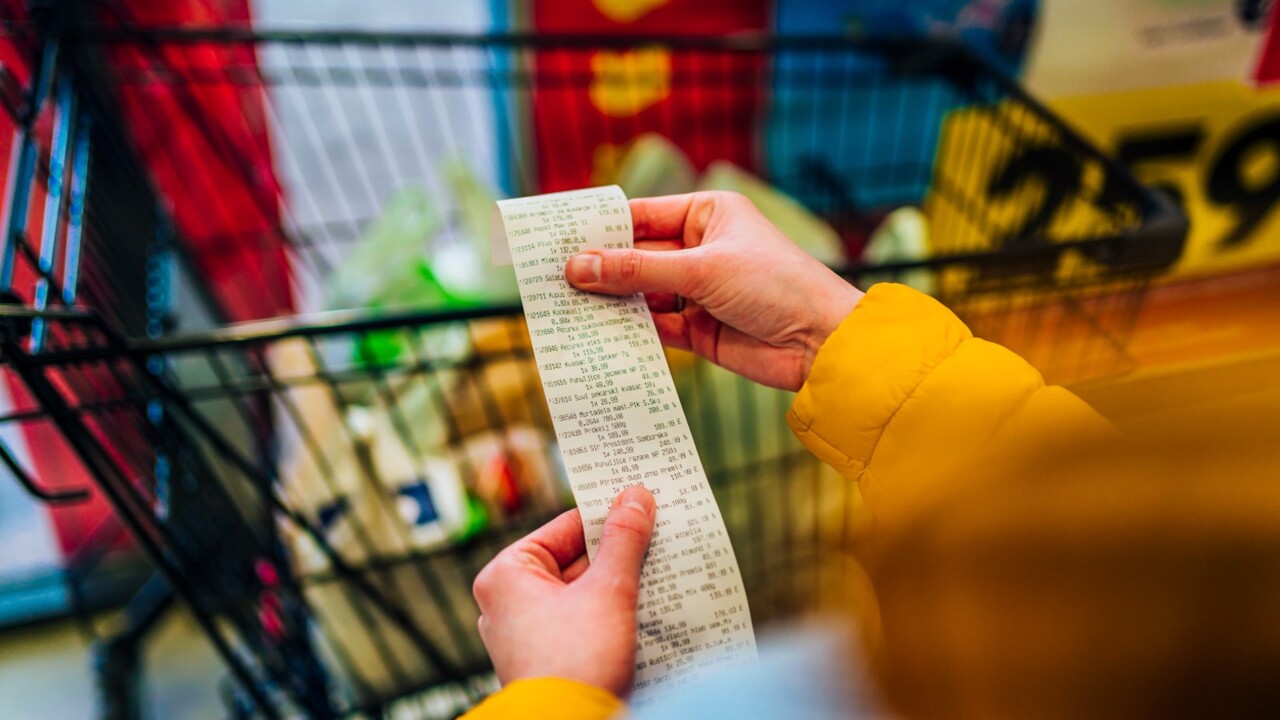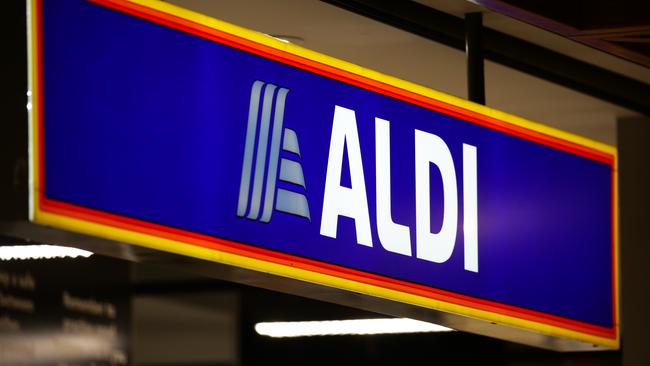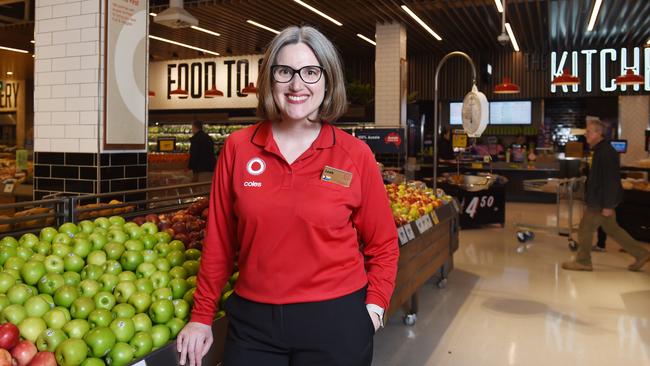
Supermarkets are suddenly in the eye of the storm and the big two: Coles and Woolworths are fast taking on the smell of the pre-royal commission banks as their social licence to operate takes a beating.

The retail pair, that combined command more than 60 cents in every dollar spent at the checkout, are set to face more accusations of gouging in coming weeks when they front up for their own respective profit numbers.
It doesn’t matter that much of the noise has been built on a flawed assumption. If politicians want farmers and suppliers to be paid more, shoppers will ultimately have to pay more. Consumers can’t pay less and farmers get more. It just doesn’t work like that.

Given supermarkets are on the front line of weekly cost of living pressures, they make easy targets. Complaints of price gouging and too much power against farmers might be lazy, but they will keep coming thick and fast.
For Woolies there’s the added twist of what it won’t be selling on Australia Day or any other day for that matter, giving this summer’s supermarket bashing some extra spice with thanks to opposition leader Peter Dutton.
Still the attacks and are now taking a personal element. Woolies’ South African-born boss Brad Banducci, who through eight years running the retailer has added thousands of staff and built more stores, has been given the full-blown shock jock treatment. More sickening is the notion that supermarket staff now face regular harassment from irate shoppers, with politicians stoking the fire.

It’s time supermarkets took in the lessons of the banks and use the moment to turn their culture inside out.
On Wednesday Banducci did a series of breakfast radio interviews. “Our real focus is how our team feels, how our customers feel and what happens in our stores,” he told ABC RN.
“We’re a very proud, 100 year-old Australian company. The biggest employer of hard working Australians. And we have the privilege of serving 20 million Australians every week and we are focused on doing that”.
Turning point?
As banks stumbled ever-closer to a royal commission in 2018, supermarkets are now approaching their own moment of reckoning. They are facing four – yes, four – separate inquiries into pricing and dealings with suppliers. Queensland’s premier Stephen Miles, who goes to the polls this year has sniffed the populism and launched his own inquiry based around cheap claims of price-gouging.
All the inquiries, including an ACCC probe, are likely to result in a lot of smoke and little else. More regulation or even levies are possible, and this will ultimately be paid by the consumer. Like banks, it may even crimp competition by hitting the smaller players harder.
This means supermarkets need to embrace the inquiries as a turning point.
Like banks, they need to quickly own their mistakes, while striving to put their millions of customers first – always. Pricing needs to become more transparent, and supermarkets will also need to take an honest look at their culture.

Woolies’ determination to open a Dan Murphy’s near the city’s biggest Aboriginal community, should have been its turning point. Woolies no longer owns Dan Murphy’s, but it took a community backlash to force it to shelve the plan and admit its errors.
And like the banks, supermarkets will need to charge the narrative around their profit.
Any big four bank boss delivering a profit today will talk at length about the flow of dividends going to small shareholders and Aussie super funds. They talk about the billions in taxes, the support given to partners, and the role banks have getting people in homes and business and facilitating economic growth. And by tacking scams or confronting issues around the cost of cash, banks too are leaning into big public policy problems.
Kaufland retreat
It is true Australia has one of the most concentrated supermarket sectors in the world and there is good reason for this.
Geography and relatively thin spread of population means the sheer cost of starting a supermarket from the ground up is daunting. Australia needs to have better transport and planning rules, improved infrastructure and higher productivity to make it easy to do business and encourage new rivals.
German-owned Aldi has managed to carve out a 10 per cent market share over two decades with its unique proposition. But it has come at a cost and incredible determination, requiring the private company to invest billions of dollars building up a network of stores in the suburbs and a dependable supply chain.

US giant Costco has a highly niche proposition, while Metcash, the wholesaler behind IGA, has under 8 per cent although is not a price leader and a fragmented business model prevents it from getting serious scale.
In recent years another German major, Kaufland was preparing a full scale assault on the Australian market but soon baulked at the high-entry price to the dance. Kaufland saw a better risk/reward for its capital by expanding in Eastern Europe.
Even Jeff Bezos’ formidable Amazon machine scaled-back its fresh food and grocery ambitions when confronted with the logistics.
Milk run
Lost in the day-to-day political skirmish about profit margins is the fact that full service supermarkets are enormously complex machines, They are labour-intensive and rely on securing gains in profit margins from efficiency and scale.
A typical Woolworths or Coles store carries between 12,000 to 20,000 individual items or stock keeping units. Small savings across millions of processes or the way stock is handled can make a big difference to profits and prices. From the cold transport and storage, there are a staggering chain of events needed for milk to be always be available fresh and chilled, be it in Wagga Wagga or Woolloomooloo. Increasingly, customers can order goods online and have it delivered hours later.
The Australian asked one former top supermarkets executive what really wins over shoppers: convenience, range or price? His response was swift. “Low prices, daylight, then everything else”.

Queensland’s Miles is being too smart by half when he says the state’s farmers get a better deal selling their watermelons by the side of the road than to Woolies or Coles.
Take out state-based taxes or levies from payroll to workers’ compensation; energy expenses; the enormous cost of expired stock; wholesale price vs. retail; the employment of tens of thousands of people across the state as well as the massive daily logistical challenge to get a reliable supply of watermelons to Brisbane’s suburbs and interstate, and Miles might just have a point on prices.
Profit is king
Negotiations with suppliers are enormously complicated, and supermarkets don’t always get the balance right, however it’s up to the market to find a solution, not governments.
And it is important to remember that supermarkets’ big suppliers are not always farmers – or even Australian.
Aldi, Coles and Woolies are pushing back demands for higher prices from suppliers that are true global gorillas. Proctor & Gamble is capped at $US350bn ($530bn) while Woolies is $44bn – who holds the real power in that relationship?
Other big suppliers include Nestle ($430bn), Johnson & Johnson ($593bn) and Unilever ($140bn) any regulatory restraint on supermarkets dealing with suppliers will sure play into that space. Then there are local food processors, demanding double-digit price rises as their own input costs from energy, wages and global ingredient prices surge. Nor is fresh food fixed, with prices constantly moving up and down – and this is passed on to shoppers.

Like banks and profit, lost in the debate is the notion that Australia is a better place for having profitable supermarkets that can attract global capital, be it equity or debt, at a low cost. They need to raise funds to build more warehouses; buy low-emission trucks and expand in the suburbs. Growth always comes with jobs.
We also want supermarket bosses to spend the profits back into their stores and build strong supply chains so that all Australians can have choice and access to fresh food despite interruptions from floods, fire drought and even pandemics.
We want them to employ and train more Australians and make their businesses ever smarter and use less energy. More than anything, we want our supermarkets to be ultra-efficient and competitive. And that’s where consumers – not governments – should hold them to account.
johnstone@theaustralian.com.au




A few months ago, Commonwealth Bank posted an annual profit exceeding $10bn. The 17 per cent jump came about after the fastest rise in interest rates in decades, with homeowners copping the brunt of the mortgage hikes. CBA’s record numbers were quickly followed by bumper profits at ANZ, National Australia Bank and Westpac. Yet there was barely a political ripple and certainly no threats of boycotts or backlash.